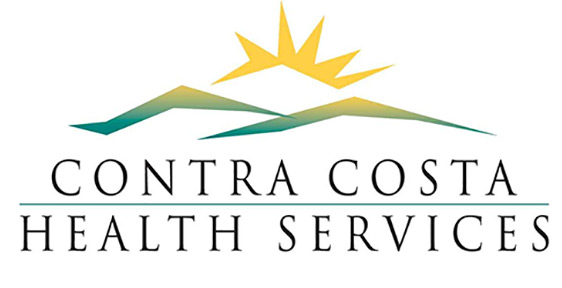On Tuesday Contra Costa Health Services issued social distancing social guidelines aimed at reducing the spread of COVID-19. The letter was issued by Anna Roth, Health Services Director and Chris Farnitano, Health Officer.
Novel Coronavirus (COVID-19) Interim Guidance for Social Distancing
These public health recommendations are intended to slow the spread of COVID-19 by reducing the number of people who become infected, especially those at most risk for severe illness. Respiratory viruses need people close together to keep spreading. Social distancing is a public health strategy that limits the closeness and interactions of people so disease spreads less.
We understand that these recommendations will substantially impact our lives and may be difficult to implement. We considered them carefully in consultation with the state and other counties who have taken similar actions. Given that we now know coronavirus is spreading in our county, this is a critical time for each of us to do our part to protect our community.
The CCHS public health recommendations outlined below are effective today. This expands upon the guidance that we issued on March 6, 2020. We expect these measures to be in place for an initial period of two weeks, and we will continuously assess their impact to determine if they need to be adjusted.
- PEOPLE AT HIGHER RISK OF SERIOUS ILLNESS SHOULD AVOID MASS GATHERINGS OF 50 PEOPLE OR MORE
- People at higher risk of serious illness should not go to mass gatherings such as parades, sporting events, religious services, celebrations and concerts where people are within arm’s length of each other and there are 50 or more people
- Avoid people who are sick
- Telecommute if possible
People at higher risk include:
o People who are 50 years old or older. Current evidence indicates that the risk of severe illness increases with age. The highest risk group are those 80 years and older.
o People of any age who have underlying medical problems such as heart disease, diabetes, cancer, or chronic lung diseases like Chronic Obstructive Pulmonary Disease (COPD) as well as those who are immunocompromised.
CANCEL LARGE COMMUNITY EVENTS
- Cancel or postpone large gatherings such as concerts, sporting events, celebrations, conventions, religious services and community events where 50 or more people are within arm’s length of each other.
- Cancel or postpone events for or attended by older adults or others who are at higher risk for severe illness.
- If a large event does take place, organizers should follow California Department of Public Health guidelines for mass gatherings.
WORKPLACES AND BUSINESSES MINIMIZE OPPORTUNITIES FOR SPREAD
- Suspend nonessential employee travel
- Minimize the number of employees working within arm’s length of each other, including minimizing or canceling large, in-person meetings and conferences
- Urge employees to stay home when sick and maximize flexibility in sick leave benefits
- Do not require a doctor’s note from employees who are sick
- Consider telecommuting for appropriate employees
- Consider staggering start and end times to reduce large numbers of people coming together at the same time
SCHOOLS
- Do not go to school if you are sick
- Equip all schools and classrooms with hand sanitizers and tissues
- If there is a confirmed case of COVID-19 at a school, we will work with the school and district to determine the best measures including potential dismissal.
- Explore distance learning and online options to continue learning
- Make backup plans for childcare given the potential for school dismissals
PUBLIC AND COMMERCIAL TRANSIT SHOULD ENHANCE CLEANING
- Increase cleaning frequency of vehicles and high-touch surface areas
- Provide hand washing stations or hand sanitizer and tissues in stations and on vehicles
GUIDANCE FOR THE GENERAL PUBLIC: WE’RE IN THIS TOGETHER
The best ways for all Contra Costa residents to reduce their risk of becoming infected with COVID-19 are:
- Wash hands with soap and water for at least 20 seconds
- Cover coughs or sneezes with disposable tissue or the crook of an elbow
- Stay home from school or work when you are sick
- Avoid touching your face, eyes, nose or mouth with unwashed hands
- Use a barrier, such as a paper towel or tissue, to touch commonly touched surfaces, such as bathroom door handles and elevator buttons
- Bump elbows or bow instead of shaking hands
- Regularly clean frequently touched surfaces
- Get vaccinated against the flu if you haven’t already
- If you have recently returned from a country, state or region with ongoing COVID-19 infections, monitor your health and follow the instructions of public health officials
- If you are ill, call your health care provider before visiting. Phone consultation may be adequate
- Avoid non-essential trips to emergency rooms, hospitals, nursing homes and long-term care facilities. If your loved ones are there, substitute in person visits for phone or video visits • Check in by phone with friends, family and neighbors that are at risk of serious illness
People can also prepare for possible disruption caused by an outbreak:
- Stock up on the essentials in case of shortages and if you need to stay home
- Make sure your earthquake kit is up to date and ready to go – it is full of vital supplies you can use for any emergency
- If you can, obtain a two-month supply of medications or consider using a mail order pharmacy
- Think about how to care for loved ones at home if they or you get sick, including how to prevent other family members from becoming infected
- Prepare to work from home if possible
Contra Costa Health Services will keep you updated with information and health advice as the situation changes at cchealth.org/coronavirus and social media.

